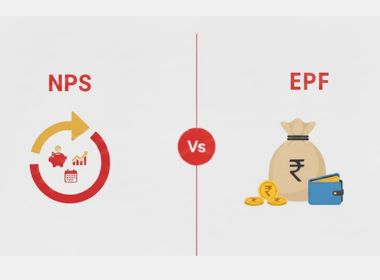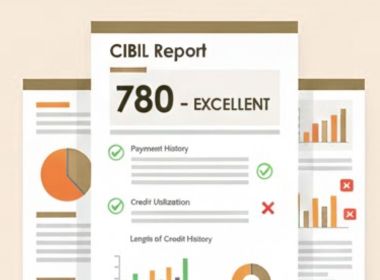Search Suggestions
- Gold Loan
- Money Transfer
- Mutual Funds

Overdraft vs Cash Credit: Which Loan Option Suits Your Business?
Running a successful business requires strategic planning and smart decision-making. Yet even well-planned plans can be ruined by sudden challenges or unexpected opportunities. When such situations occur, having the right financing in place can make all the difference.
There are two prevalent options businesses consider: cash credit and overdraft. Both options help manage everyday operations, but they’re designed for different scenarios and come with unique benefits. Let’s explore what a cash credit and an overdraft are, so you can decide which suits your business better.
Table of Content
- Understanding Cash Credit
- Understanding an Overdraft
- Understanding the Basic Differences Between Cash Credit and Overdraft
- Cash Credit and Overdraft: Which is Better?
Understanding Cash Credit
Cash credit is a type of loan designed to help businesses manage everyday expenses, such as buying inventory or managing other operational costs. When compared to other types of business loans, where interest applies to the full approved amount, the cash credit only charges interest on the part you use. Always check the eligibility for CC. This system keeps the cost low and offers flexibility, as you are not paying for unused funds. The benefit of cash credit is for a business that needs frequent access to working capital without unnecessary interest burden.
Understanding an Overdraft
Up to a fixed limit, an overdraft helps businesses withdraw money above the current balance in the account. In overdraft, the good thing is that banks cover the differences; it does not matter if your balance is at zero, low, or even in the minus. Moreover, interest is calculated daily and applies only to the amount overdrawn and for the time it’s used. The benefit of an overdraft is that it helps businesses manage urgent expenses and handle sudden cash flow for smoother operations.
Understanding the Basic Differences Between Cash Credit and Overdraft
While both cash credit and overdrafts provide working capital solutions, they serve distinct purposes and operate differently. Listed below are some of the distinctions.
Type of Credit Facility
Cash credit is structured as a long-term financing option, suitable for businesses with ongoing capital requirements such as inventory management or daily expenses. On the other hand, an overdraft is a short-term funding option designed to offer immediate liquidity to cover temporary shortfalls in the cash flow.
Requirement of Collateral
For loan repayments cash credit generally needs collateral that will serve as collateral. When it comes to overdraft features, in several scenarios, there is no need for collateral, specifically for smaller amounts. Instead, based on the account history, current assets, and relationship with the bank, many banks may approve the overdrafts.
Suggested Read: How to Apply Business Loan Online?
Repayment Conditions
Cash credit comes with more flexible repayment terms and is usually approved for at least a year or longer, depending on the agreement and the applicant’s CIBIL score. On the other hand, overdrafts are meant for short periods, with repayment expected within a few months, hardly extending beyond a year.
Adjustments of Credit Limit
With cash credit, the borrowing is usually fixed unless reviewed by the lender. When it comes to overdraft, the limit is more volatile. Based on usage patterns, repayment behavior, and financial health, banks can increase or decrease the limit. In many scenarios, every month the overdraft limit lowers automatically, unlike cash credit, where the approved amount remains constant unless changed.
Fees and Rate of Interest
Based on the type of collateral, offered credit history, and performance of your business, the rate of interest may vary for the cash credit. In the case of overdrafts, interest rates are a bit higher due to their unsecured nature. Moreover, related to overdrawn amounts and maintenance, overdrafts can come with additional costs.
Cash Credit and Overdraft: Which is Better?
Several factors should be considered when choosing cash credit vs overdraft. An overdraft might be perfect if you want to manage temporary cash shortages. Similarly, if your goal is to purchase inventory or handle seasonal business fluctuations, opting for cash credit could be more suitable. So, start by identifying the specific reason you require funds.
Further, the overdraft is easy to get for limited collateral or enterprises with a minor credit profile. On the other hand, cash credit usually demands a strong credit history and adequate protection. Finally, review the interest rates and repayment structures associated with each option to determine which best aligns with the financial goals of your business.
- Instant Personal Loan
- EMI Calculator
- Document Required
- Track Personal Loan
- Interest Rate
- Procedure and Eligibility
CATEGORIES
OUR SERVICES
-

Credit Score
-

Gold Loan
-

Personal Loan
-

Cibil Score
-

Vehicle Loan
-

Small Business Loan
-

Money Transfer
-

Insurance
-

Mutual Funds
-

SME Loan
-

Corporate Loan
-

NCD
-

PAN Card
-

NPS
-

Custom Offers
-

Digital & Cashless
-

Milligram Rewards
-

Bank Mapping
-

Housing Finance
-

#Big Business Loan
-

#Gold Loan Mela
-

#Kholiye Khushiyon Ki Tijori
-

#Gold Loan At Home
-

#Sunherisoch
RECENT POSTS

Gilt Fund vs Liquid Fund: Full Form, Meaning & SIP Guide
Know More
XIRR in Mutual Funds & SIP: Full Form, Meaning, Formula and How to Calculate
Know More
7 Key Factors to Consider Before Taking an SME Loan
Know More
Difference Between Black Gold and Gold: Everything You Need to Know
Know More
NPS vs EPF: Everything You Need to Know About Retirement Savings
Know More
What is a Credit History? Impact on Credit Score and Credit Report
Know More
Loan Closure Vs. Loan Settlement: Meaning, Benefits, and CIBIL Score Impact
Know More
Is Silver the New Gold? A Look at 2025 Price Trends
Know More
What Are the Various Types of Equity Funds and How They Work?
Know More
Why Are Gold Loans Becoming the Most Preferred Financial Option in 2025?
Know MoreFIN SHORTS

What Are Co-Pay and Deductibles in Insurance Policies?
Know More
Should You Take a Loan Against Your Mutual Fund or SIP?
Know More
Top 5 Best Mid-Cap Mutual Funds to Watch in 2026
Know More
Are Personal Loans Right for Retirees? Key Points to Consider
Know More
What Happens to a Personal Loan After the Borrower Dies?
Know More
Best Loan Choices for Credit Scores of 580 and Below
Know More
7 Reasons Why a Gold Loan Is the Best Option for Small Businesses
Know More
10 Reasons Why People in India Prefer Physical Gold
Know More
Real Estate vs Gold: Which Is a Better Investment in India?
Know More
10 Common Mistakes That Make Investors Lose Money in Mutual Funds
Know More
10 Reasons Why Gold Has So Much Appeal in Uncertain Times
Know More
7 Ways Settling Debt Can Impact Your CIBIL Score
Know More- South +91 99469 01212
- North 1800 313 1212




